Take back your summer nights and family get-togethers!
Our editors and experts handpick every product we feature. We may earn a commission from your purchases.Learn more.
Take back your summer nights and family get-togethers!
Our editors and experts handpick every product we feature. We may earn a commission from your purchases.Learn more.

Although some scents work as a repellent for mosquitoes, other body lotions or perfumes can actually attract these pests.The best way to get rid of mosquitoes is to stay away from fancy-smelling perfumes, colognes, body washes or lotions if you plan on spending time outside during high mosquito activity hours. These hours are typically dusk to dawn between April and October.

Turns out, mosquitoes are attracted to darker-colored materials. If it’s not too hot to cover yourself up, you should do so. Wearing long sleeves and pants will significantly reduce the number of mosquito bites you accumulate by the end of the evening.
If you’re in need of some new pieces of clothing and want to kill two bugs with one stone, so to speak, a brand called ExOfficio sells mosquito repellent clothing for men and women.
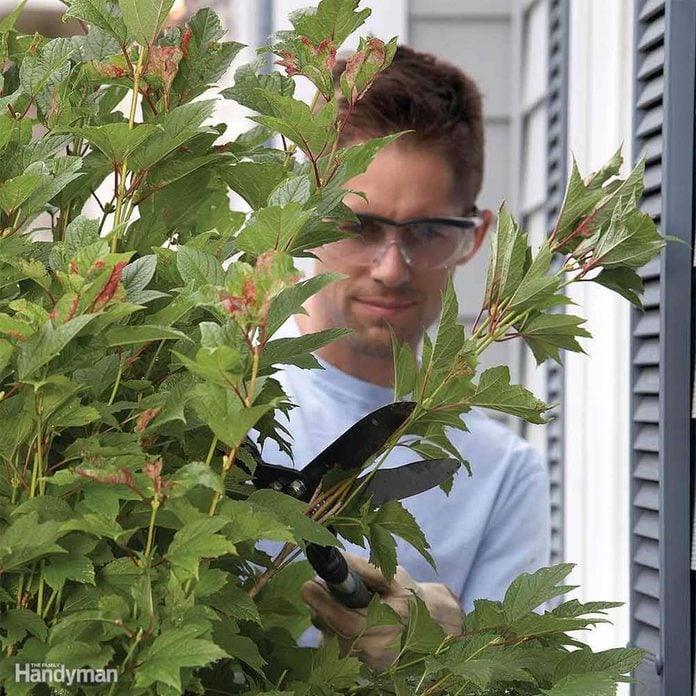
Mosquitoes like shade to escape the midday heat. Hedges, bushes, and tall grass provide shade that shelters mosquitoes. They need a place to get out of the heat and sun during the day, so the fewer shaded areas they find, the less they’ll congregate in your yard.
Keep the hedges and bushes trimmed, and mow the yard at least once a week. Mow or till weedy spots to minimize shade and to keep these marginal areas from becoming overgrown jungles. Encourage your neighbors to do the same. Otherwise, you’ll just drive the mosquitoes next door — and they’ll come back often to visit.

Spray-on repellents with DEET are still considered the most effective way to keep mosquitoes away, but a spatial repellent like the Thermacell can create a safe zone for your patio or another area in your backyard without the smell and sticky skin. It works by heating up a fuel cartridge that creates a zone of protection ranging from 15-20 feet. Family Handyman has tested one of the Thermacell products, and it works. The Patio Shield is a perfect for your backyard sitting area.
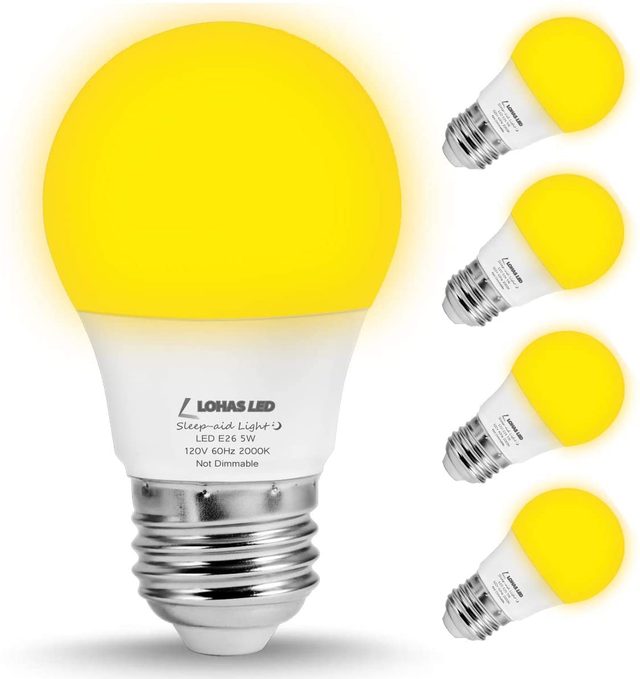
LOHAS is one of several companies that produce a yellow light bulb that can keep bugs away outside. Simply screw these babies into your outdoor light fixtures to naturally keep the bugs at bay. There’s also a string light product, if that’s more your decor style.
“I never thought I would write a review for a lightbulb, but these things are awesome,” writes one satisfied Amazon customer. They continue on, “I was looking for a yellow-colored light for my porch that would keep the bugs away and also reduce light pollution. I put these in about a month ago and they have been perfect. Bugs at our door are reduced about 95% so we don’t have to dread opening the door at night and being swarmed.”

Having accessible water sources around your home will draw in mosquitoes. Why? Because mosquitoes actually lay their eggs in standing or slow-moving water. By cutting these water sources, you are cutting the number of mosquitoes laying eggs around your home — and in return, having fewer mosquitoes around the house in general.
Some of the biggest culprits of water sources include unused tires, cans, pools, and pool covers. Any plastic containers or ceramic pots for planting that are empty and collect water should be removed. Make sure to clean out your gutters as much as possible, and always keep an eye out for water build-up around the house. Birdbaths are also an easy target for mosquitoes!
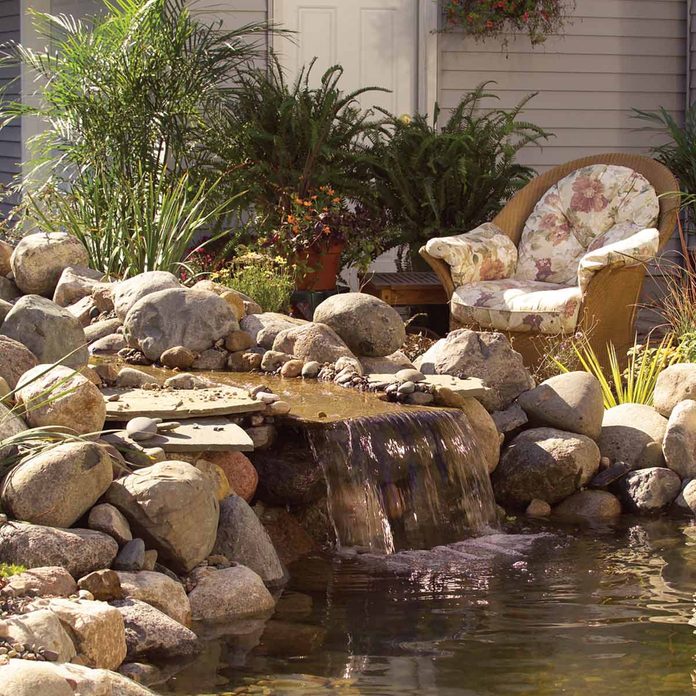
Sometimes it’s nearly impossible to get rid of standing water. And sometimes, like if you have a small pond in your backyard, you just don’t want to. The good news is that it’s possible to treat pools of water you can’t drain with substances that kill mosquito larvae.
Pour a tiny amount of Agnique MMF mosquito larvicide into the water so that a thin layer covers the surface. It’ll suffocate the larvae (and any other insects in the water) without harming fish. You can also use Mosquito Dunk in the water. These doughnut-shaped briquettes produce a toxic bacterial spore that kills mosquito larvae but won’t harm fish or animals. One briquette lasts for 30 days, and large bodies of water may require more briquettes.

Goldfish, koi, minnows, and guppies will all eat mosquito larvae in pools. If you have a pond and want to keep it, keeping it stocked is best way to get rid of the mosquitoes who will try to use it as a breeding ground.
When water is part of your landscaping or used for recreation, you don’t want to drain it. But that doesn’t mean you have to surrender it to mosquitoes. Buy some koi, a few goldfish, or minnows from a pet store or bait store and add them to your water garden.

Be sure to chlorinate water that remains standing for a long period like the water in swimming pools and hot tubs. Follow the manufacturer’s recommendations for the safe use of chlorine. Keep pools covered when not in use.
For small fountains, birdbaths, and wading pools that you don’t want to chlorinate, simply change the water once a week to dispose of mosquito larvae. Sweep surfaces with a brush to knock off eggs before refilling the container.
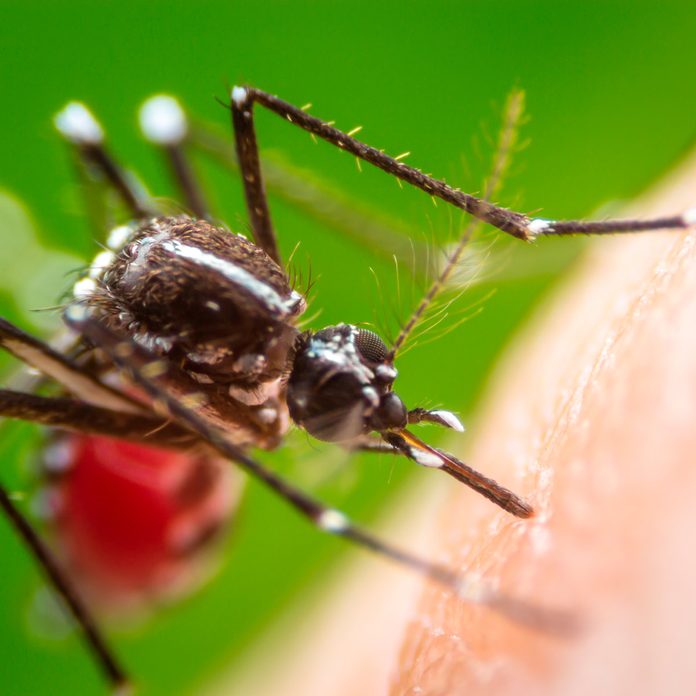
Large wooded areas, ponds and lakes are havens for mosquitoes. It’s almost impossible to treat these areas yourself. So, the best way to get rid of mosquitoes here is to call in the big guns — your local Mosquito Control District. Local policies vary and services are localized, but often, when the number of mosquitoes reaches a certain level, Mosquito Control will spray for them. This is also a good idea if mosquitoes are swarming your yard in unusually high numbers. The last thing you want is to get covered in bites while enjoying your yard.
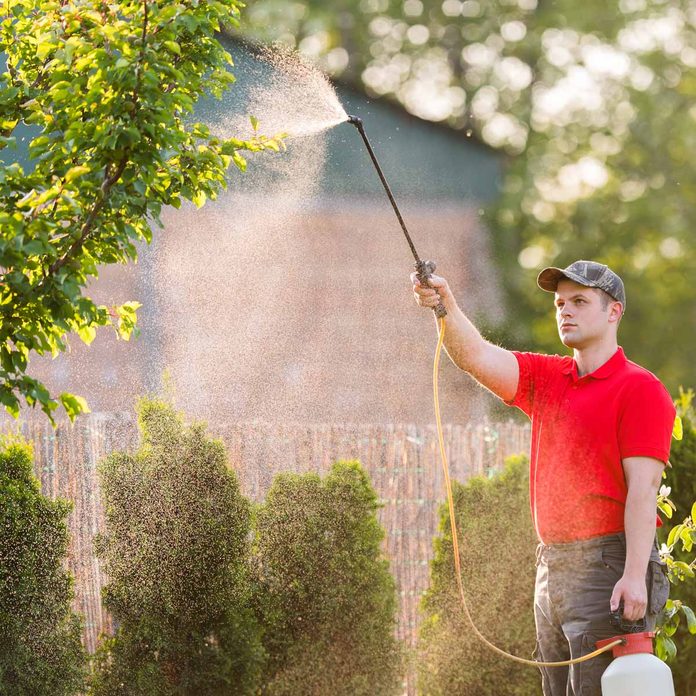
Professional exterminators will treat your yard with insecticide.
If Mosquito Control won’t spray your property, hire an exterminator to spray the foliage. This ensures a swat-free party by wiping out mosquitoes and other insects for at least a few days. Have this done one to three days before your party. Expect to pay $135 for a yard of less than half an acre and $225 for a yard up to an acre. For a (nearly) mosquito-free summer, have the foliage sprayed monthly (about $350 for the summer for a small yard).
Although you can buy sprays yourself, we recommend leaving the application of insecticides to the pros. They can buy more effective treatments that are restricted to licensed exterminators. They also know which to use and how much to apply to kill the mosquitoes without posing a hazard to other critters. When used according to the label, the insecticides pose minimal risk to humans and pets.
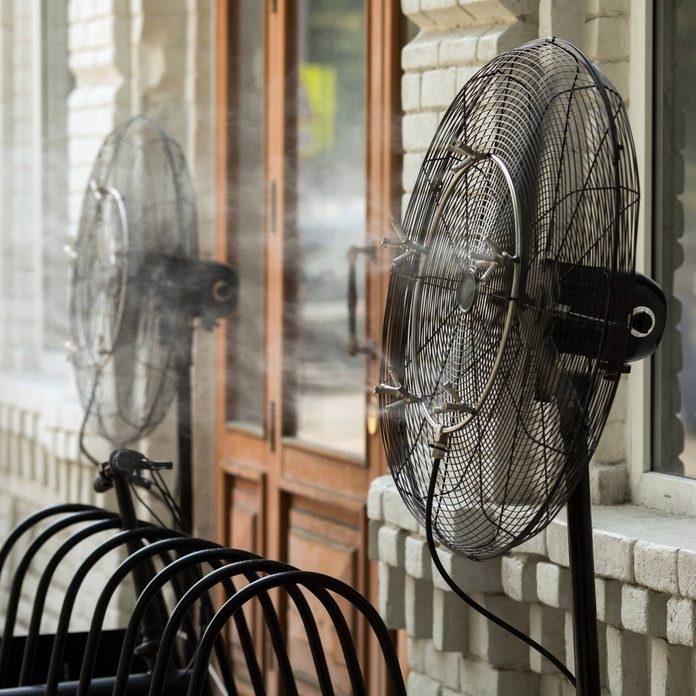
Mosquitoes are particularly attracted to body odors and the carbon dioxide we exhale when breathing. The chemicals human bodies put off hang in the air around us and allow mosquitoes to hone in on us — and that’s when the biting starts. Rapid air movement confuses mosquitoes, and dissipating these telltale human signs makes us harder to find.
So set fans on the ground and turn them on to break up the scent patterns. This simple solution is surprisingly effective for spur-of-the-moment events or gatherings in your yard. Because they are so light, mosquitoes are weak flyers. The breeze from the fans makes it difficult for them to fly, keeping them out of your entertainment area. If you don’t have repellent on hand, then this is the best way to get rid of mosquitoes for the moment.
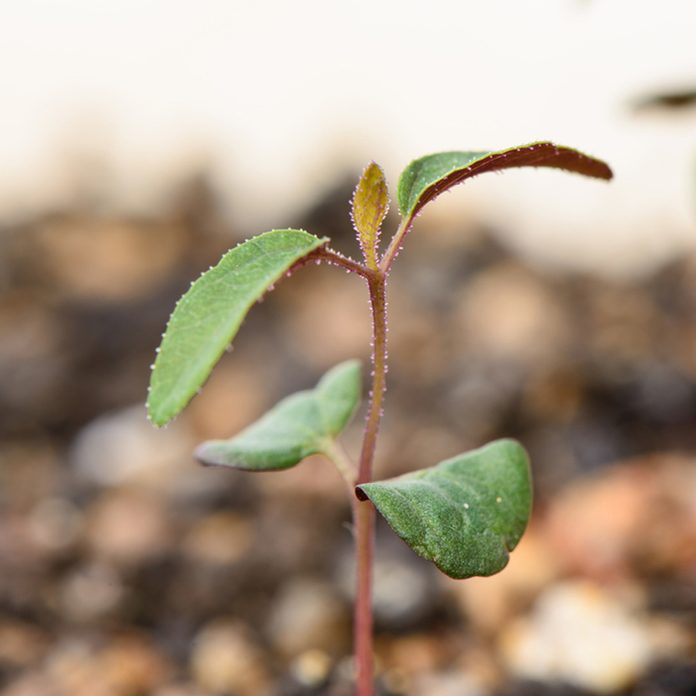
This may seem like a myth, but oil from lemon eucalyptus is actually recommended by multiple government sources as an insect repellent. If you’re looking for a rather natural mosquito repellent, this oil is the best way to get rid of mosquitoes.
Lemon eucalyptus is an effective natural oil to use as a mosquito repellent, with sharp-scented compounds proven to drive mosquitoes away, though it doesn’t last as long as other sprays.
Note: This is a potent home bug repellent and is not child or pet-friendly.

Lavender oil is a very common ingredient in homemade bug repellents. If a recipe calls for citrus oils, neem oil, lemon eucalyptus, clove, or cedarwood oils, you can also add a little lavender oil. This will help improve the fragrance.
But you can also use lavender oil by itself in a mixture similar to the citrus oil recipe for a home bug repellent. It won’t be quite as effective as some other options, but if you can’t stand the smell of other oils, it’s certainly worth a try as an alternative.

Much like lemon eucalyptus, neem oil is known to contain compounds that insects heartily dislike. That means you can use it as an effective repellent.
It is derived from evergreen neem trees, which are native to India and known for potent fruits and seeds. Add a couple tablespoons of the oil into your witch hazel spray and try it out. If the spray isn’t mixing well even when you shake it, you can also add a little vegetable glycerin (a.k.a glycerol, a clear, odorless liquid typically made from palm, soy or coconut oil) to help the ingredients combine.
Neem oil works best when combined with more fragrant oils.

You can also use clove oil (or even add a few whole cloves to your spray bottle) for an enhanced repellent that can better deter insects. Clove oil is quite potent though, so don’t apply it directly to your hands or leave it on your skin overnight.

Peppermint and castor oil are also both well-regarded as repellents. Plus, the peppermint smells great. But go easy on the peppermint oil at first, as it can be surprisingly potent compared to other essential oils.